

Our Spanish Specialist, Christina, explains how learning a second language supports children’s learning and development before they start school.
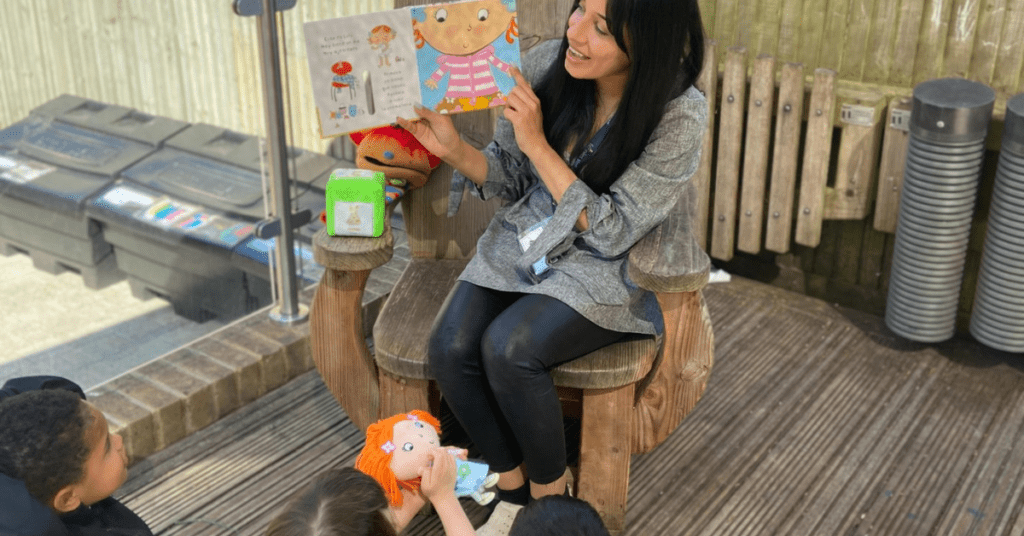

I’m Christina, a Language Specialist at Fennies, and I teach Spanish. I have always championed learning languages at an early age and growing up in a multilingual household, I became fascinated by language learning and teaching. After teaching English in Spain, I was amazed by how quickly children under the age of 5 years old were able to learn a new language through song and play. As I joined Fennies, it excited me that early years settings were starting to realise the huge benefits that learning a second language at an early age can bring.
Recently, Lisa (Fennies French Specialist) and I put together a blog about the benefits of learning a second language in the early years. One of those benefits was that it helps children prepare for school. In this post, I’m going to delve deeper into this and explore how learning a second language in the early years can prepare your child for school and positively contributes to their school readiness.
Studies show that languages play a very important role in a child’s development in the early years. The skills they gain can provide them with the tools to be ready for school, supporting those vital next steps and their transition to school learning.
School readiness can be defined in various ways, but I really love this description from the statutory framework for the EYFS (Early Years Statutory Framework). It refers to school readiness as “[giving] children the broad range of knowledge and skills that provide the right foundation for good future progress through school and life.”
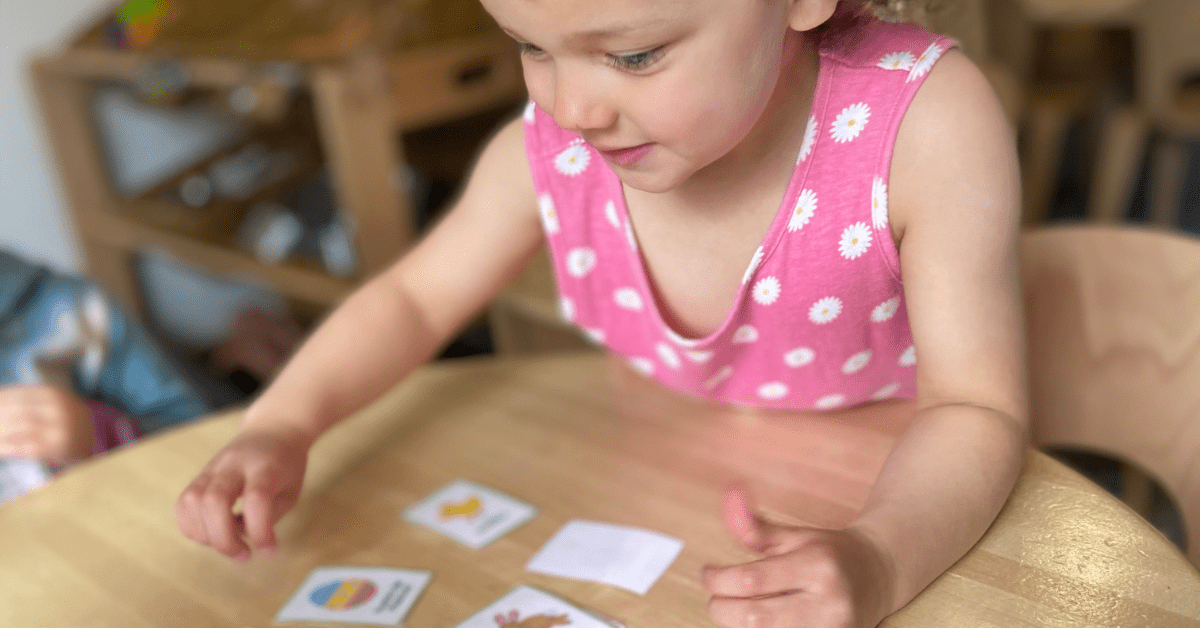

It’s important to remember that when I mention school readiness, I’m simply referring to skills that will help children prepare for being in a school environment. And this can look different for every child, after all, each child is an individual and develops at a different pace during early education.
The reference to developing a ‘broad range of knowledge and skills’ is central to our language classes at Fennies and something I always bear in mind when creating the early years curriculum for foreign languages.
The three prime areas of learning (personal, social, and emotional development, physical development, and communication and language) are core aspects of every child’s early development, and it’s crucial that children’s experiences during the early years support these fundamental areas. Within these aspects, there are specific areas of learning (Literacy, Mathematics, Understanding the world, and Expressive arts and design), which represent crucial shared cultural tools that help children to engage in the society in which they live.
Learning a language at a young age contributes to both these key EYFS areas as well as an overall love for learning, which helps your child develop the skills they’ll need for school.
Let’s delve a little deeper into each of these aspects:
Throughout children’s nursery experiences, we are encouraging a love for learning. This is an incredibly important skill to have as it supports them through their entire lives and makes transitioning into their next learning environment less daunting.
When children learn a second language during the early years, this can contribute to their willingness to learn in school. This is because children have been exposed to a wide variety of new learning opportunities that they can be excited about and are much more likely to take on new educational challenges.
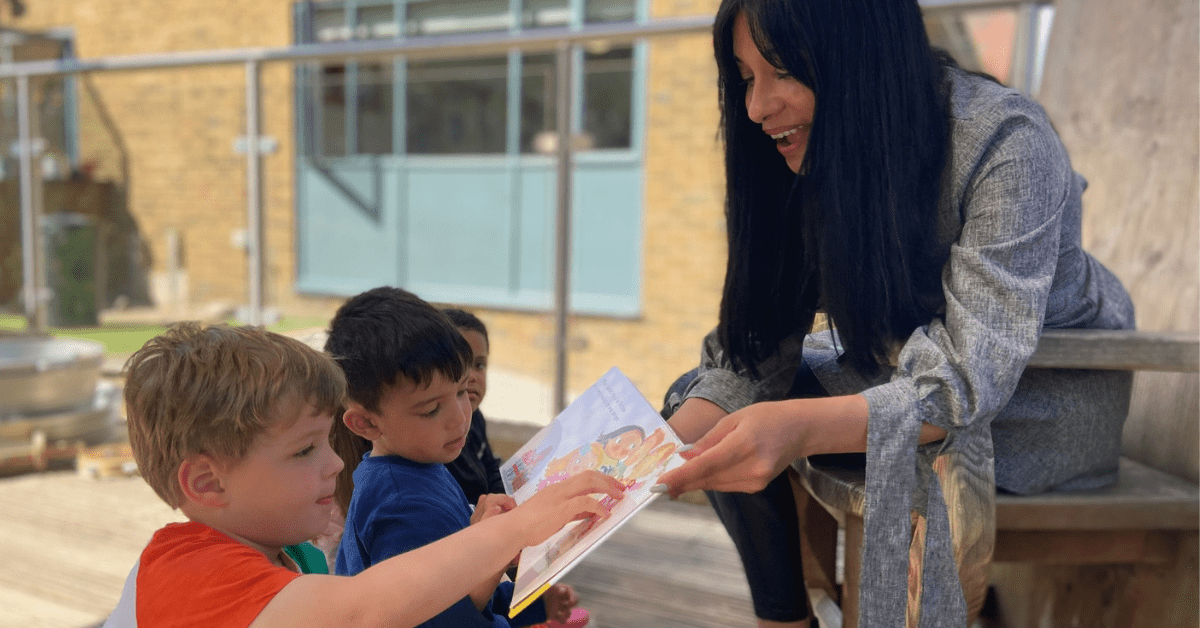

I have noticed that some children really enjoy the language sessions but may not necessarily enjoy other activities throughout the day. When it comes to school readiness, it can be more about ‘what’ a child is ready to learn rather than their willingness to learn overall, which is why it’s important that we integrate a variety of teaching methods throughout our lessons.
“It’s great to see children getting involved in language lessons by repeating the words and dancing to the songs. Over the weeks a specific child has overcome her nervousness and has really fallen in love with Spanish. With lots of help and encouragement, she now can’t wait to do Spanish. She goes home and talks about her Spanish lesson with her family and can’t wait for the next lesson.”
Room leader, Fennies South Croydon Tweet
Learning a second language allows children to display their understanding in a variety of ways, such as using gestures, responding to questions, and following instructions. Our language classes allow children to respond to simple questions which, in turn, allows them to expand their vocabulary while enhancing their speaking skills in preparation for school.
"Spanish and French classes challenge the children who are already able to articulate well and gives them a new challenge to stimulate their brain. One child at the nursery is non-verbal, but really engages with Spanish lessons, he goes home and spontaneously shouts Spanish words, which makes us all very proud!"
Hayley, Fennies Eltham Manager Tweet
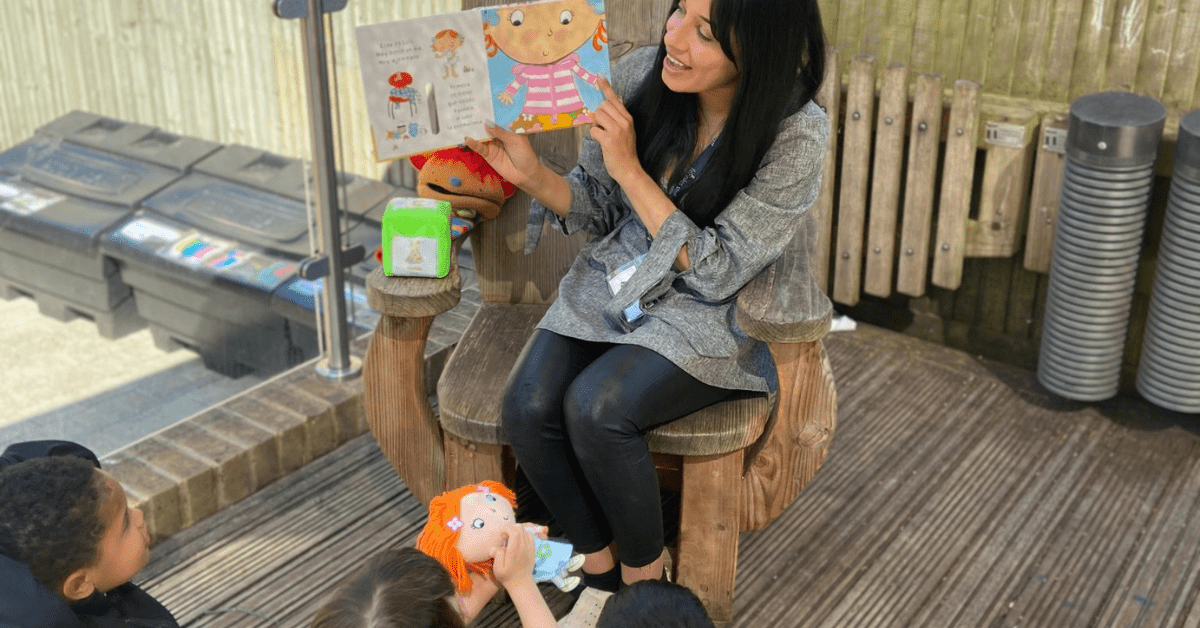

During our language sessions, we use a variety of exercises to encourage the children to show understanding and work on their pronunciation. This includes fun brain breaks, reading stories, singing songs and rhymes, using props, playing bingo, treasure hunts and memory games.
Through these activities, they are able to learn new words as well as repeat previously learnt words, which helps to also enhance their language skills. This is most effective when speaking and singing slowly to ensure the children can clearly understand and articulate the new vocabulary.
Learning a second language allows children to learn about and develop an understanding of cultures that are different to their own. Research suggests that those who are exposed to diversity in the early years gain stronger social skills, can be more open-minded and are more accepting of people who speak different languages.
Giving your child the opportunity to grow and expand their skills and knowledge as young as possible gives them a huge advantage before starting school and meeting new people.
When a language is introduced positively, this increases the child’s self-esteem and PSED (physical, social, emotional development) skills.
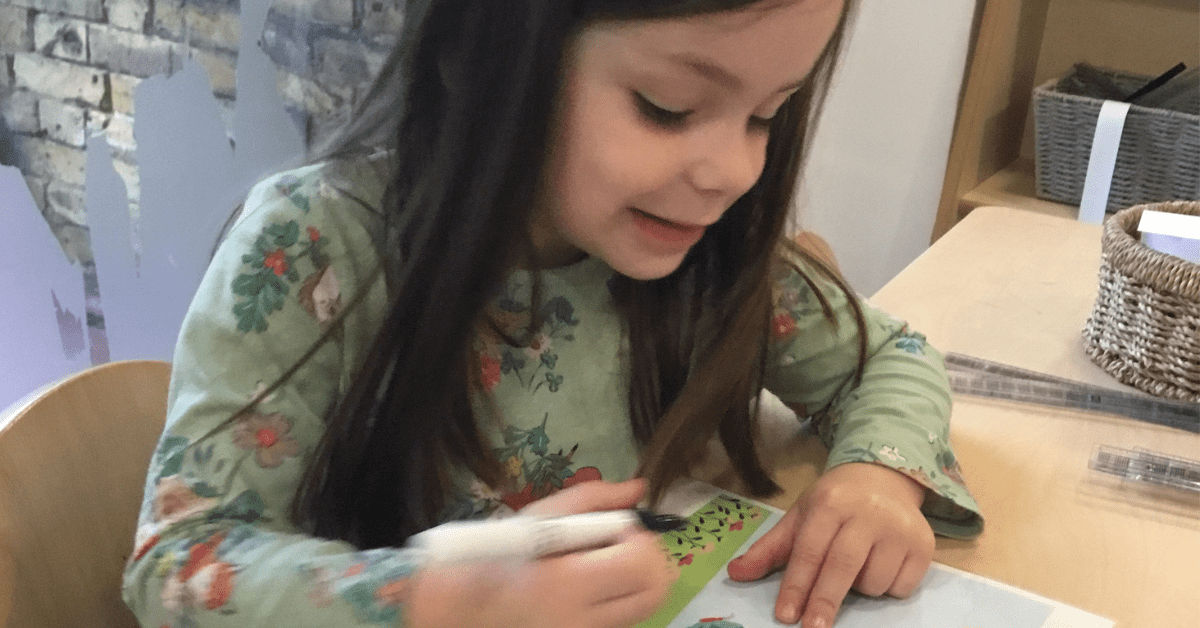

Many children at our nurseries don’t speak English as their first language, and understandably, some parents may be concerned about their child learning Spanish or French, if they already speak an additional language at home. However, there have been many examples where children have thrived in this case.
“We have a child at our nursery who was very shy, and already had English as an additional language. At first, the child’s concentration and language skills were limited, and he was hesitant to join in the sessions, but week by week, through hard work he has shown real enjoyment and progress. Now, he is so excited for his language lessons, and his communication and language skills have advanced massively.”
Kristina, Croydon Nursery Manger Tweet
Growing confidence before your child starts school is essential for social interactions in their new learning environment, and when a child succeeds in learning a language, this helps boost their self-confidence.
In all our preschool rooms, we have created a language corner to allow the children to get creative when learning a new language. Our language corners include interactive resources such as talking buttons (pre-recorded voice buttons to encourage the children to repeat key vocabulary), puppets, flashcards, games, and books.
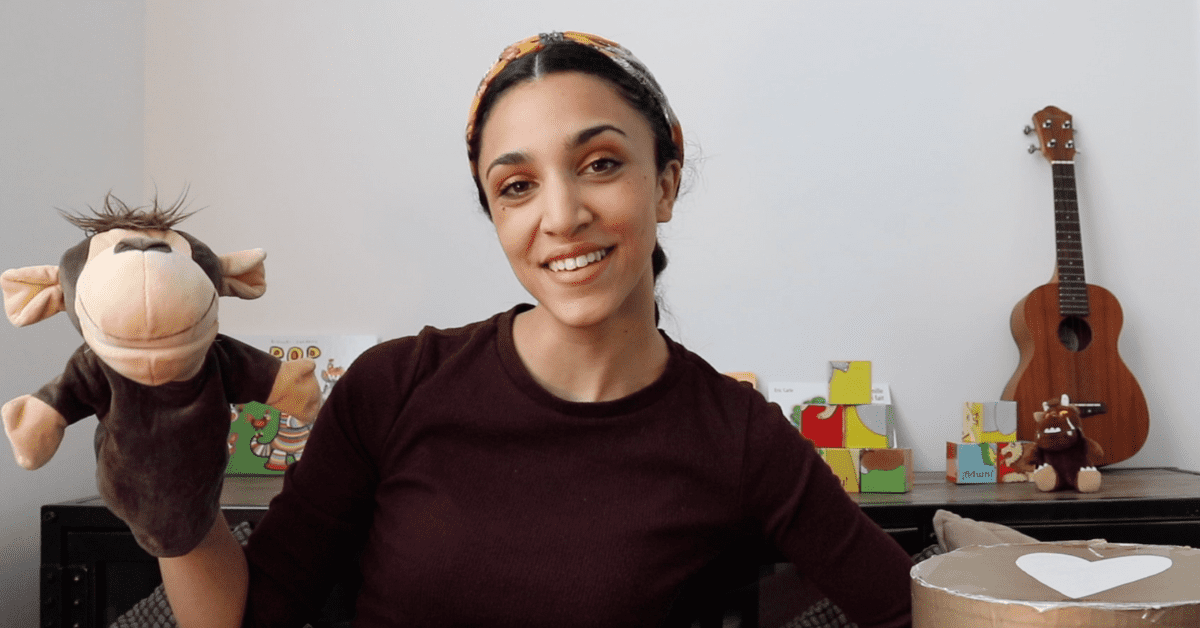

Throughout our language lessons, we often use puppets to bring learning to life and engage the children. Children are also given the opportunities to hold the puppets, which allows them to get creative with the language whilst learning in a fun way.
Providing a variety of resources for the children to use can prepare them for what to expect at school.
“There are resources available in the room, such as our own Spanish area, which the children have access to all day, every day, as well as making full use of watching the Spanish videos on the Clevertouch screen at the nursery and sending links to the YouTube channel for home learning for the children to use to build confidence.”
Kerri, Oxted Nursery Manager Tweet
Mathematics is a key area of learning and an important skill for children to have when starting school as it filters into problem-solving and critical thinking. Throughout language classes, we incorporate lots of mathematical concepts like counting, through games, songs, and storytelling.
“A child at one of the nurseries has significantly developed their mathematical skills since taking part in language lessons. He can recite the numbers 1-10 in English, Spanish and French consecutively whilst understanding and differentiating between the languages. He has recently been eager to learn numbers 11-20, showing his understanding and willingness to learn, which is a great skill to hold before starting school.”
Lisa Moret, French Specialist Tweet
There are many ways to include language learning in your child’s daily routines. I have put together some top tips on how to support your child with language learning, including fun activities which are sure to get your child excited about starting school.
Educational videos are a great way to engage your child’s learning and introduce them to learning a second language. Here at Fennies, we regularly create home learning videos for our registered parents. These videos allow children to continue to thrive in each language whilst at home.
Our home learning videos include songs, rhymes, storytelling, games, and so much more interactive and educational content created by the Specialist Team to ensure each child has a head start before school.
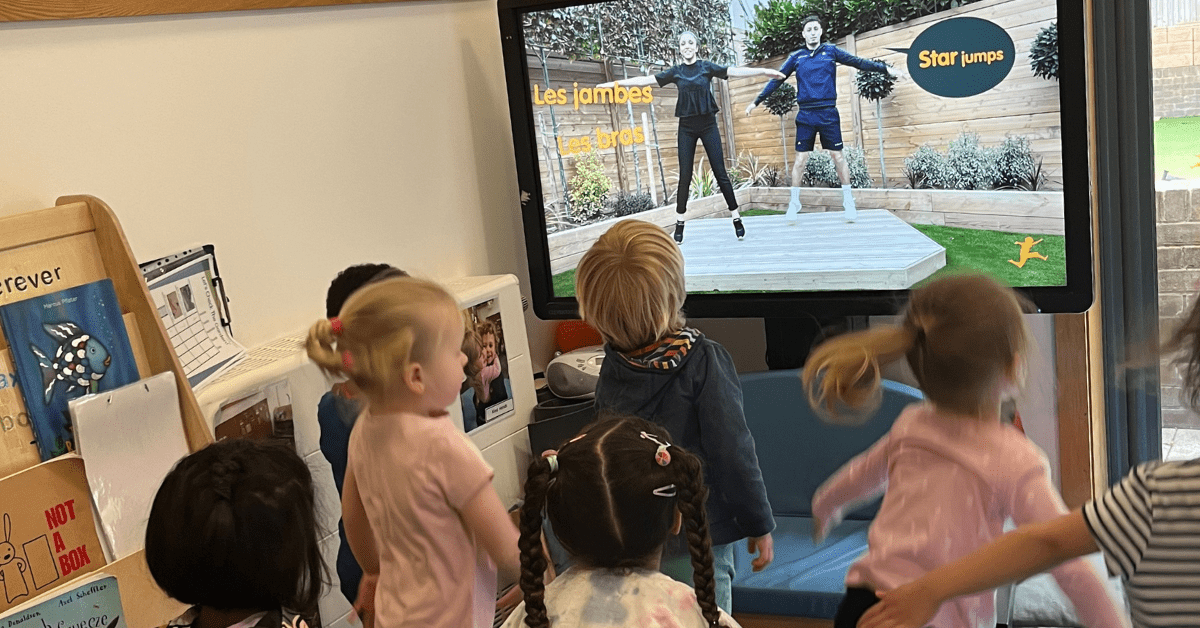

Repetition is key to learning a second language when increasing vocabulary and improving memory, so we advise watching these videos regularly with your child to expand their knowledge in preparation for school.
Stories are a great way to introduce new vocabulary and phrases to children in a familiar context. If, as a parent, you lack confidence when reading in a foreign language, audiobooks can be an extremely useful resource.
Regularly using greetings in other languages can help children to repeat and absorb key vocabulary, which can also help improve their memory.
Make languages part of your routines, eating, brushing teeth etc. Not only will this help your child associate words with objects, but the repetition will help them memorise the vocabulary.
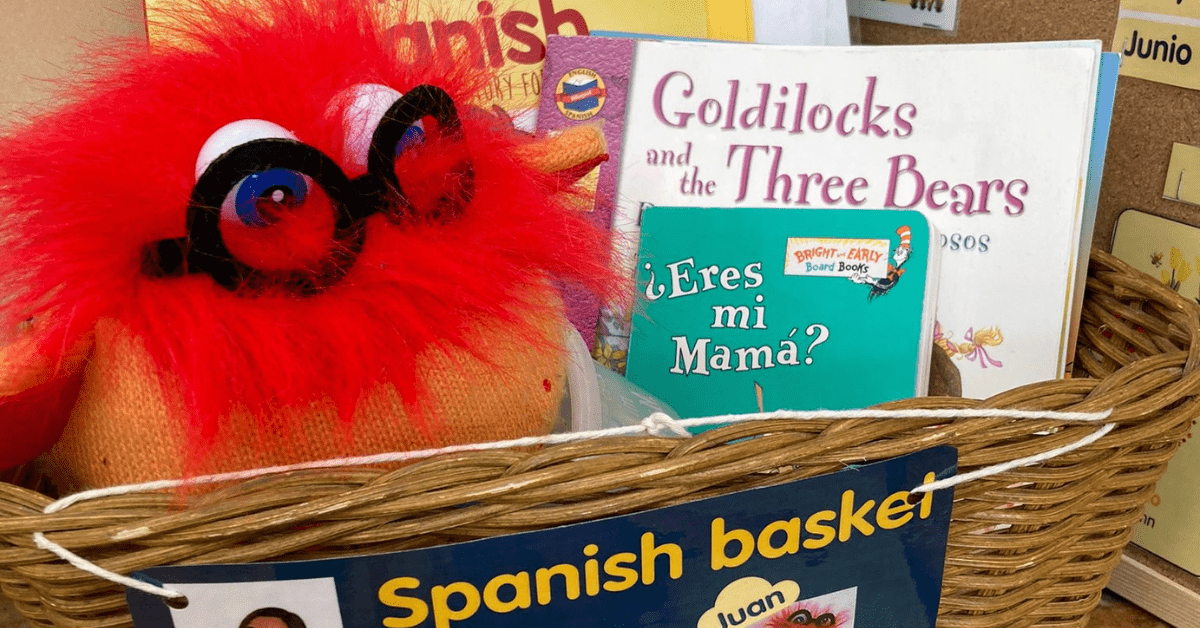

I’ve already mentioned the benefits of a language corner, so why not create one at home?
Incorporate languages in games you play at home. Simon Says and bingo are always very popular with our pre–schoolers.
It’s evident that learning a new language at an early age is extremely beneficial for so many reasons. As we have seen throughout this blog there are many skills which can be gained from learning a second language before the age of 5, which aid school readiness.
Children here at Fennies continue to thrive in their development with the introduction of language, giving them a head start for when they go to school. I can’t stress the importance of learning languages at a young age. My advice will always be to choose a setting for your child that supports your children with the opportunity to expand their learning. Fennies is a great start for early years development, and we continue to ensure to have the best Education Team to provide the key skills needed for school readiness


Language Specialist




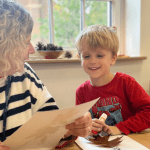

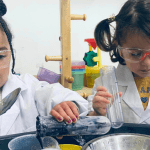

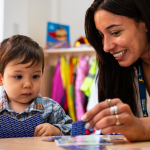

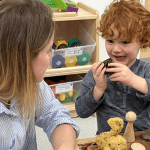

View All
This website uses cookies so that we can provide you with the best user experience possible. Cookie information is stored in your browser and performs functions such as recognising you when you return to our website and helping our team to understand which sections of the website you find most interesting and useful.
You can read out full privacy policy here
Strictly Necessary Cookie should be enabled at all times so that we can save your preferences for cookie settings.
If you disable this cookie, we will not be able to save your preferences. This means that every time you visit this website you will need to enable or disable cookies again.